Skin care is important because our skin is our largest organ and our entire exterior! Do you take care of your skin as well as you should? It’s time to create a regime you can follow, or maybe you need to tweak your current one…
First step is finding out your skin type. The easiest way to find this out is to wash your face thoroughly with a mild cleanser and pat dry. Let your skin sit with no products on top and after 30 minutes, evaluate whether your skin feels parched, especially if you smile or make any other facial expressions. If your skin feels tight, your skin is likely dry. If there is noticeable shine on your nose and forehead, your skin is most likely normal/combination. If there is shine on your cheeks in addition to your forehead and nose, you most likely have oily skin.
Now you know your skin type we can start creating your skin care routine!
Washing your face
I thought I would let you know after my many years of over washing…. only use your cleanser once per day. This is because over washing can strip your skin on natural oils that it needs. I like to cleanse at night after a day of wearing makeup and being outside and around cars. When you wake up in the morning your skin hasn’t be touched since the night before. Plus, the oils that have been produced since the night before are all natural and not bad.
When choosing a cleanser, be very careful on the product you buy. Because they will hide ingredients that aren’t good in their pretty bottles and convincing words. One ingredient to be very careful about is ‘Sodium Laureth Sulfate’ this ingredient strips your skin of all the natural oils that you need and leaves your skin dry and unhealthy. Many products you can buy at your local stores will include this ingredient, so do your research before you get mesmerised by the pretty packaging.
Cleansers that many skin specialists recommend
Simple Micellar Gel Cleanser
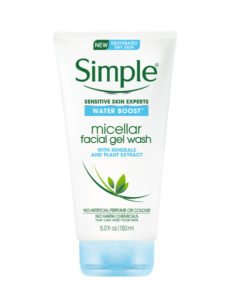
CeraVe Cleansers
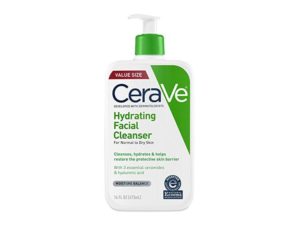
Youth the the people Superfood antioxidant Cleanser
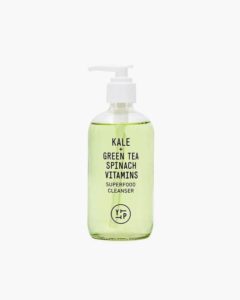
Ingredients for Oily Skin
Look For
- Salicylic Acid – Benzoyl Peroxide
- Niacinamide – Glycolic Acid
- Hyaluronic Acid – Dimethicone
- Sodium Hyaluronate – Retinol
- L-ascorbic acid (Vitamin C) – Clay
Avoid
- SD Alcohol – Denatured Alcohol
- Tocopheryl Acetate – Witch Hazel
- Sodium C 14-16 Olefin Sulfate
- Sodium Lauryl Sulfate – Fragrance
Ingredients for Normal Skin
Look For
- Glycolic Acid – Panthenol
- Sodium Hyaluronate – Retinol
- Dimethicone – Hyaluronic Acid
Avoid
- SD Alcohol – Denatured Alcohol
- Isopropyl Alcohol – Witch Hazel
- Sodium Laureth Sulfate – Menthol
- Sodium Lauryl Sulfate – Fragrance
- Sodium Chloride – Menthol
Ingredients for Dry Skin
Look For
- Polysorbate 85 – Butylene Glycol
- Cocamidopropyl Betaine – Urea
- Cetearyl Alcohol – Shea Butter
- Sodium Hyaluronate – Stearic Acid
- Propylene Glycol – Glycerin
Avoid
- SD Alcohol – Denatured Alcohol
- Isopropyl Alcohol – Witch Hazel
- Sodium Laureth Sulfate – Menthol
- Sodium Lauryl Sulfate – Fragrance
The next step to your skin care routine is exfoliation.
Now I know you’re thinking of those homemade sugar scrubs, but really there are two main ways this is done:
Physical exfoliation
A scrub brush (like Clarisonic, microbeads in facial washes, salt scrubs, etc).
Chemical exfoliation
A chemical ingredients like salicylic, lactic, or glycolic acids that promote skin overturn within the body.
I personally recommend going with a chemical exfoliation. Why? It’s proven to be much gentler on the skin and will penetrate the skin even deeper than any physical exfoliants. But please stop making these home-made scrubs! Using household items on your face is NEVER a good idea. Your skin is fragile and scrubbing away with sugar grains actually tears your skin, leaving it worse than when you started.
Exfoliation is an important step in your regime. According to Dr. Howard Murad, exfoliation is the method of removing the dead skin cells from the surface of the skin in order to promote skin turnover and radiance. So, what he is saying is by removing our dead skin cells (in a safe way), our body is encouraged to create new, healthy skin cells. This prevents dry skin, premature aging, and dullness. Exfoliation is crucial to prevent your skin from going through all those icky problems.
Moisturise
It may not surprise you that many dermatologists consider moisturising to be the most important step of skin care. This is because a lack of moisture in the skin causes all major skin problems: dryness, rapid aging, dullness, dead skin cell build-up, and more. A healthy moisturizer contains all the nutrients your skin will naturally lose when exposed to the environment like sweating, and even cleansing. Moisturisers are vitamins for your skin so it’s important that you apply it every day. After cleansing and exfoliating, take a pea sized amount of the moisturising cream and gently rub in into your skin. Be sure to cover all areas of the face and neck until your skin feels hydrated.
Now we hear this all the time. SUNSCREEN IS IMPORTANT. We are constantly exposed to the sun and its UV rays which, as we all know, are dangerous to our skin. Are you sitting in an office all day? Well guess what, those UV rays can still get to you. Keeping our skin protected will help with anti-aging, protection against skin cancer, and will keep out skin soft and supple 24/7. SPF 30+ will keep you protected.
Do you have a skincare routine?
See more
 Written by Sophia Ivory
Written by Sophia Ivory
Curly hair and she don’t care, this stylish babe plays by her own rules. With a love for dance and all things body positive, you’ll usually find her searching out the latest fashion trends and digging through local thrift stores. Word of warning, don’t bring your dachshund around her, she’ll want to keep it.
Check out her Instagram for all things goals! @sophiaivory

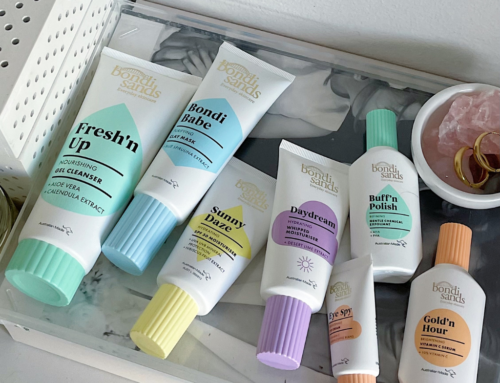

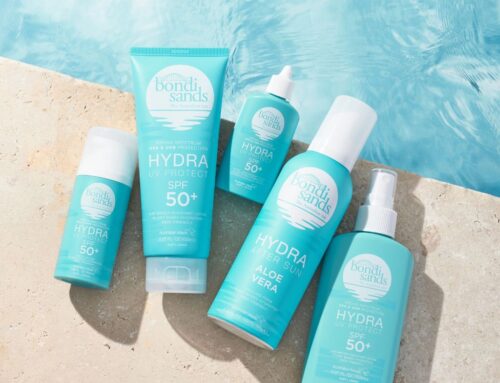

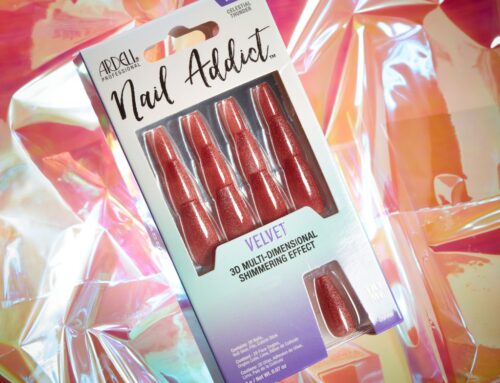
Leave A Comment
You must be logged in to post a comment.